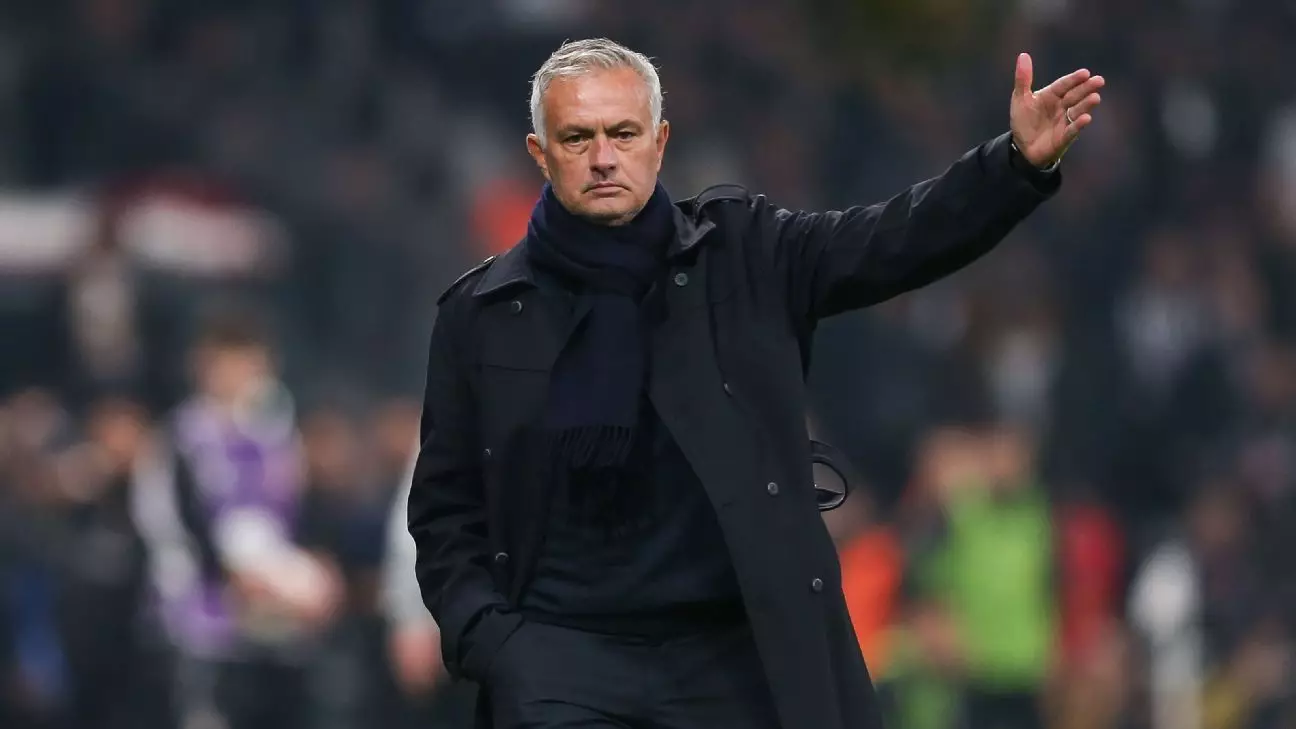Jose Mourinho’s return to the managerial spotlight at Fenerbahce has been nothing short of captivating. The Portuguese tactician, known for his intense demeanor and tactical prowess, has once again stirred conversations with his candid revelations about his future. After a challenging period marked by a recent loss to Hatayspor, Mourinho vocalized his commitment to the club, indicating that he is set to continue his journey in Istanbul. His assertion stems not just from personal ambition, but from the backing of Fenerbahce’s president, Ali Koç, who has publicly expressed his desire for Mourinho to remain at the helm as a means of achieving stability.
The Unwavering Support from Leadership
The complexities of football management often hinge on the relationship between the coach and the club’s leadership. Mourinho’s situation exemplifies this dynamic perfectly. Koç’s support, especially as he revealed the significant €36 million offer that Mourinho declined mid-season, highlights the trust placed in him. Mourinho, despite the temptation of monetary gains from another club, prioritized his responsibilities at Fenerbahce. This speaks volumes about his character and intentions; he aims to rebuild and stabilize a team that has recently faced public scrutiny.
Challenges and Expectations
However, this loyalty does not come without its challenges. Mourinho’s forthrightness about refereeing standards in Turkey and his critique of recent performances have invited discontent amongst fans. The reality of managing a high-profile team always brings an intense spotlight, and for Mourinho, the pressure to deliver in the upcoming season underlines the expectations that accompany his role. The fans’ dismay following a series of disappointing games cannot be overlooked — it reflects a broader dialogue about player commitment, motivations, and the mental fatigue encountered as seasons draw to a close.
Looking Toward the Future
The team’s second-place finish in the Super Lig, while respectable, falls short of the heights Mourinho aims to achieve. As he prepares for yet another qualification campaign for the prestigious UEFA Champions League, the stakes are high. Mourinho’s experience, having guided several teams through European finals, provides a tactical advantage that could prove vital. Nevertheless, he acknowledges the bitter taste of a previous near-qualification, losing out in a nail-biting penalty shootout. This motivating factor could energize Fenerbahce’s squad into delivering performances that resonate in the Champions League, a competition that Mourinho clearly favors over others like Europa or Conference League.
The Psychological Game of Football
Mourinho’s reflections on player motivation capture a crucial aspect of modern football — mental resilience. While critics may suggest apathy in the squad, Mourinho argues for a deeper understanding of the emotional landscape that players navigate during high-pressure seasons. His insistence on the innate desire of players to win implies a belief in the underlying passion that drives professional athletes. He recognizes that motivation varies across the season’s timeline, yet he firmly advocates for accountability.
The upcoming summer promises to be a pivotal period for Mourinho and Fenerbahce. It is not merely about tactical adjustments or player acquisitions but a holistic approach to building a squad capable of competing at Europe’s elite level. As Fenerbahce prepares for the looming challenges, the anticipation grows — will Mourinho’s rugged determination pave the way for a renaissance at one of Turkey’s most storied clubs?

